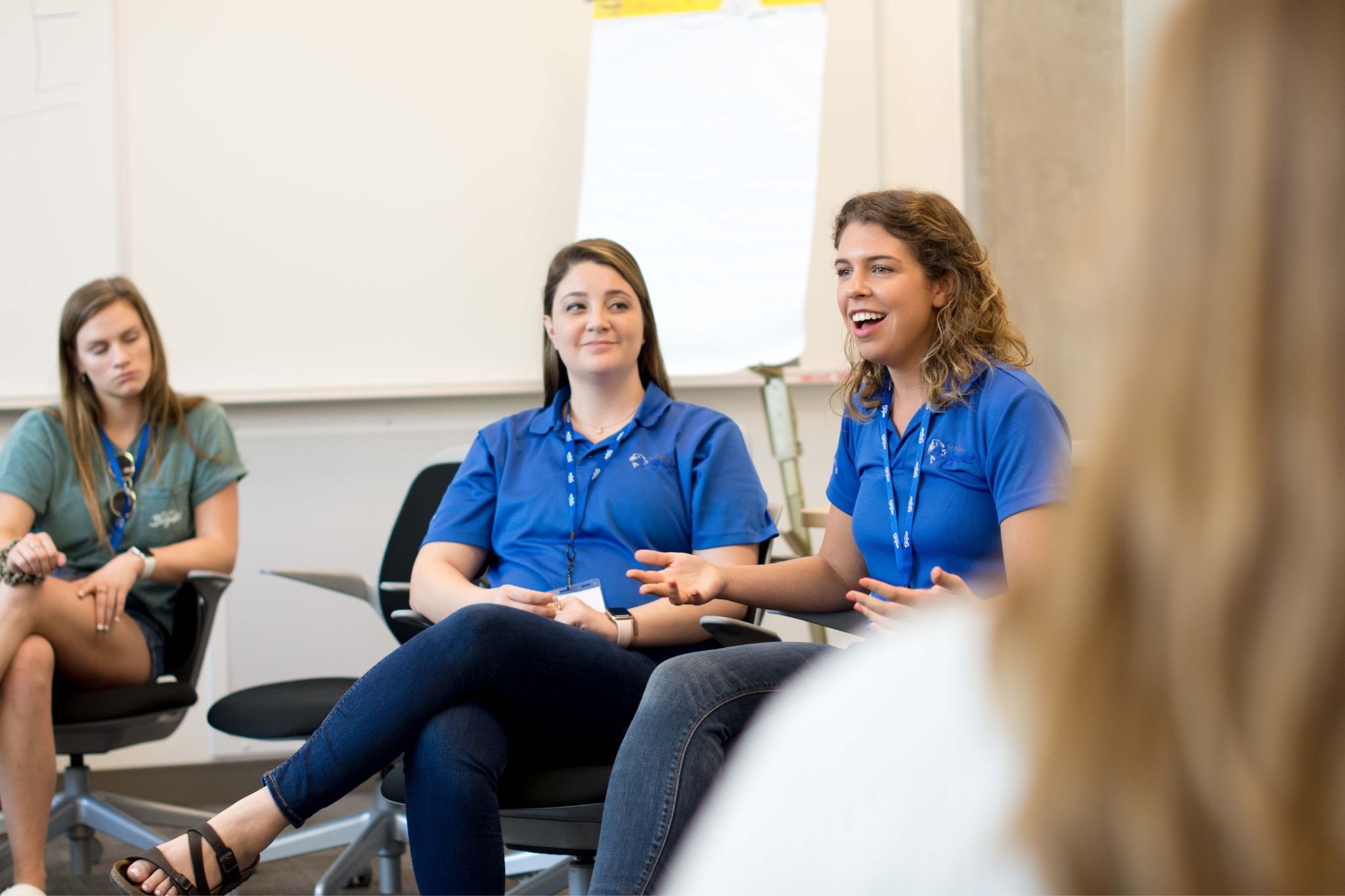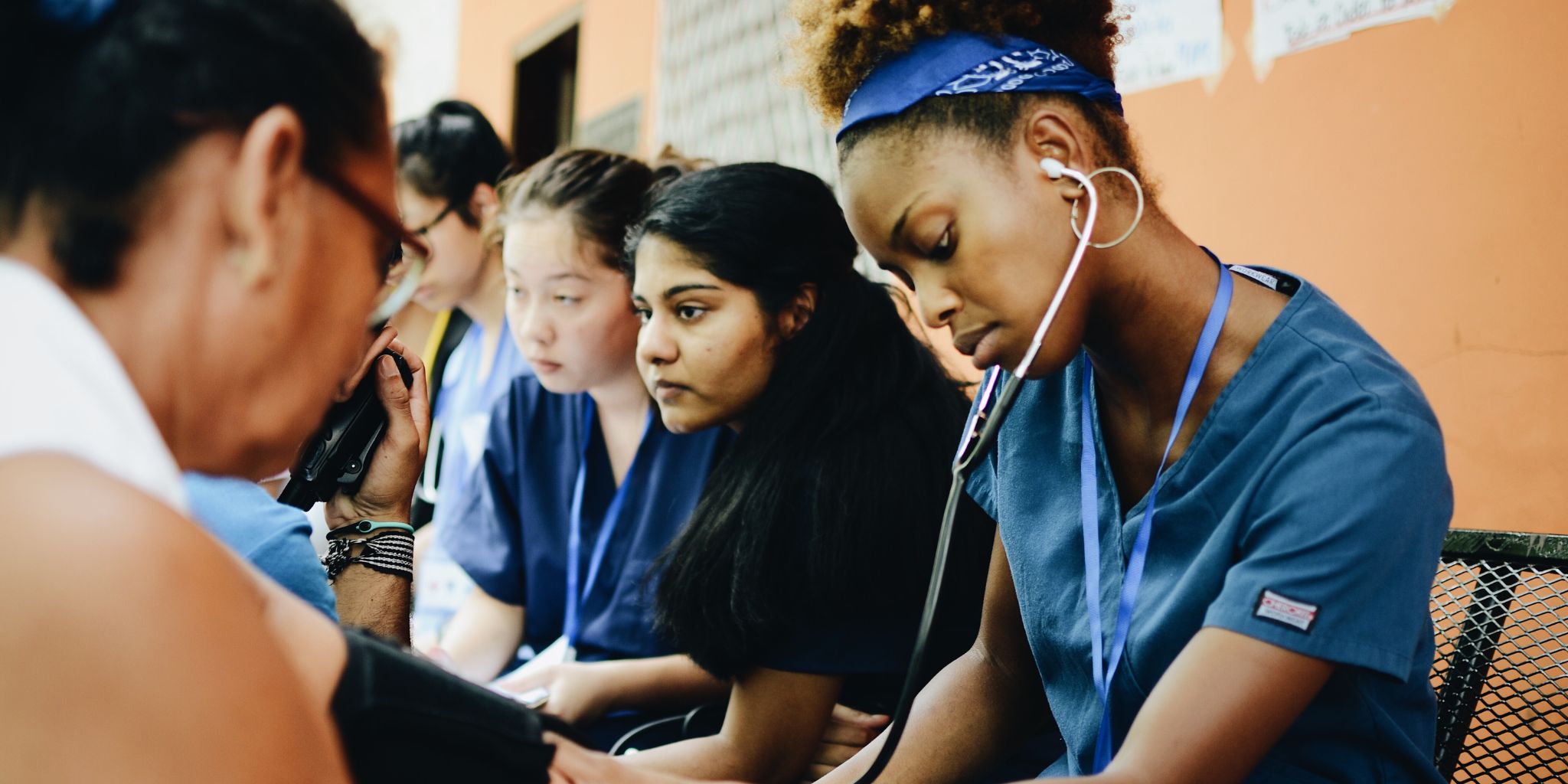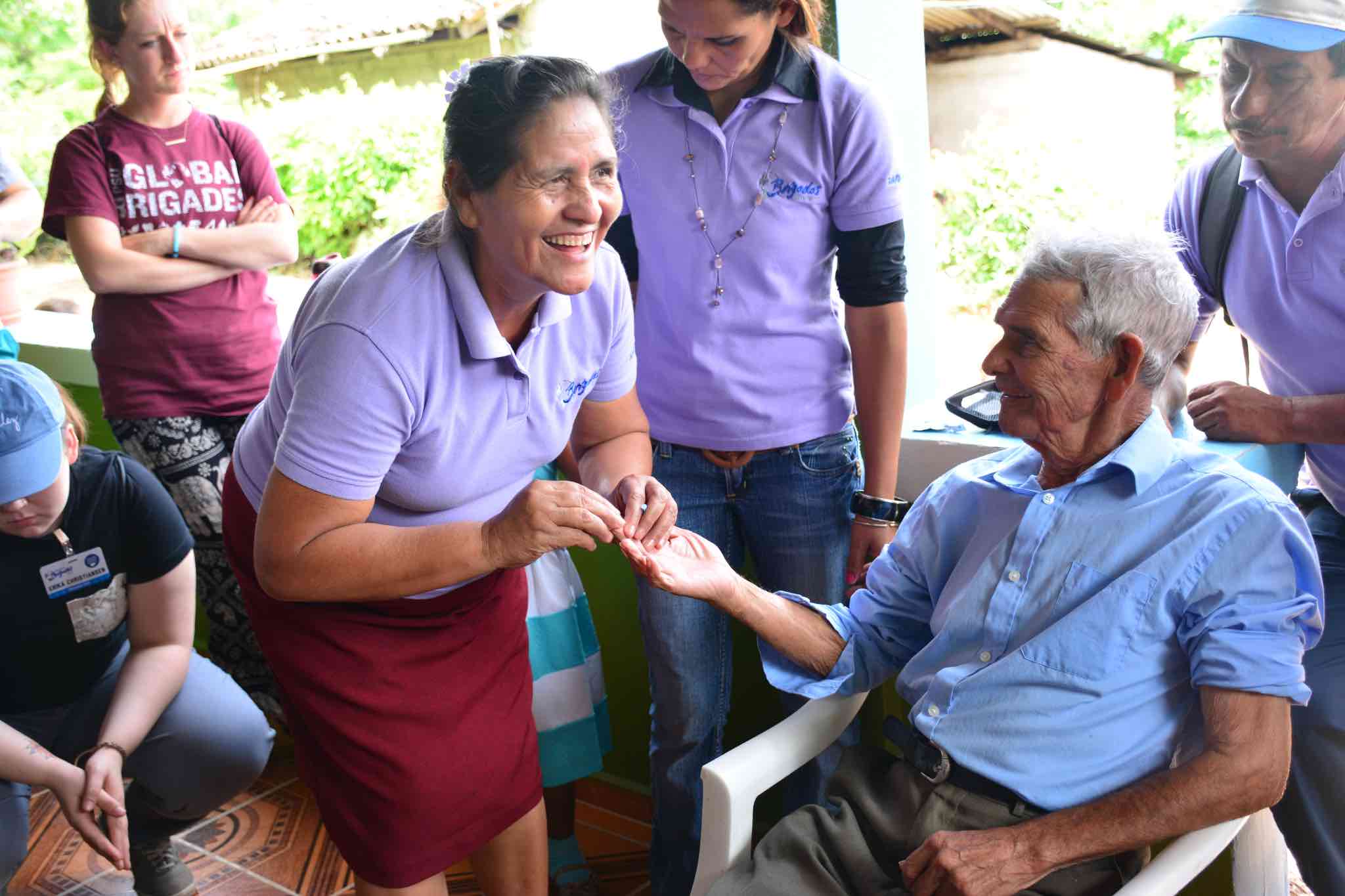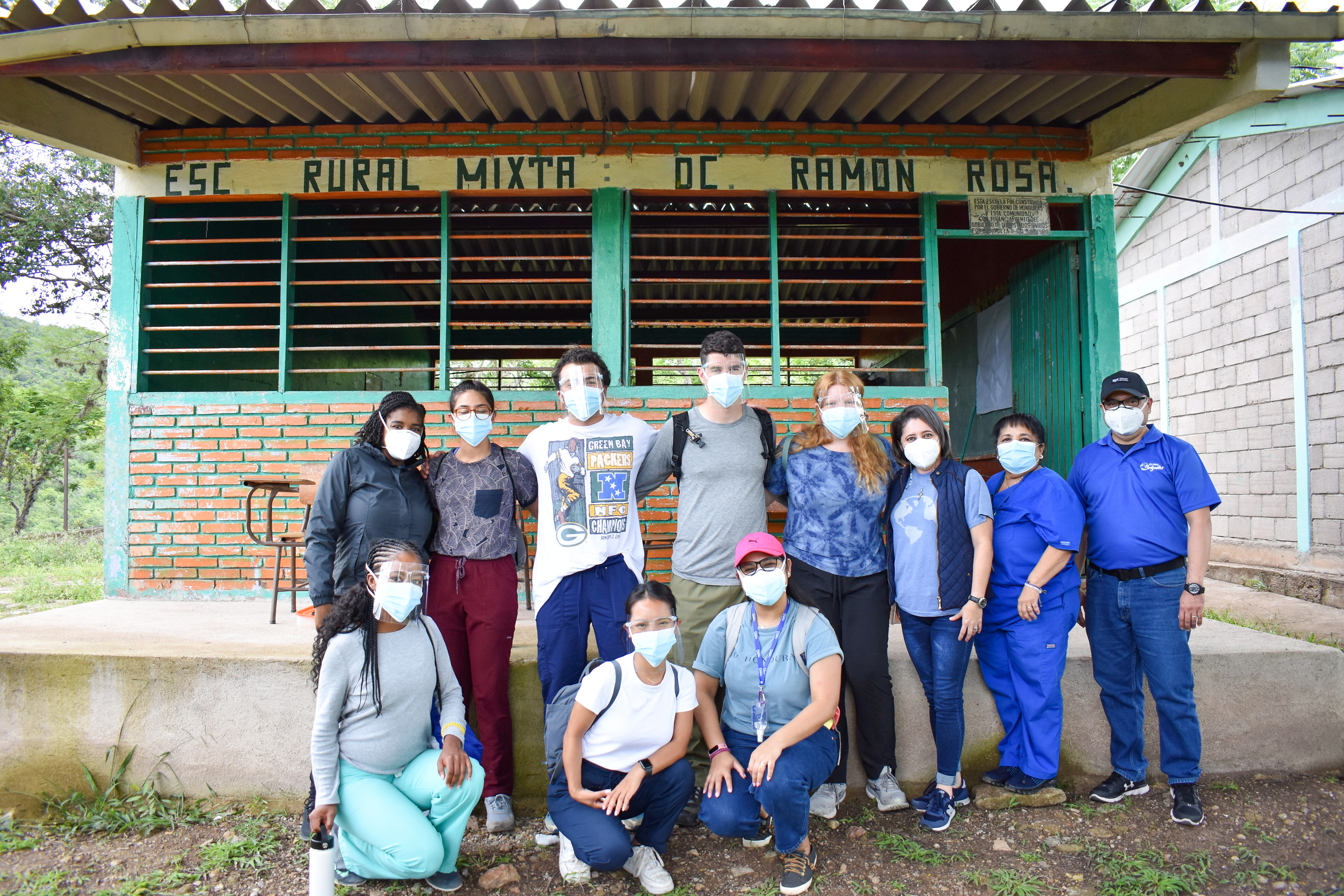Having a clear focus when discussing your volunteer experience at your med school interview allows you to demonstrate your growth and commitment to a career in the medical field.
One purpose of participating in a Brigade Chapter is to get exposure to healthcare from a global perspective. That’s a major benefit when you’re asked about your volunteer and work experience during med school interview questions.
Being invited to a medical school interview means your GPA, MCAT score, primary medical school application, and secondary essay impressed the admissions committee. During your interview, the admissions committee will want a holistic view of who you are as a person, why you want to become a doctor, and why you’re interested in this program in particular.
We have some tips to help you talk about your volunteer experience to ace your med school interview.
1. Tell a Story With Your Volunteer Experience
Listing the soft skills you think the medical school admissions committee is looking for, like teamwork and communication skills, when you discuss your volunteer experience, is not the best strategy. You risk losing the attention of your interviewer.
How do you talk about volunteering in an interview? Narrating your volunteer experience like you would a story is a much more captivating way to explain yourself. Introduce the patients or people you served like a movie introduces characters. Preserve their privacy, but include descriptors of their personalities.
Present the problems you faced with patients and community members, like the conflict and rising action, maybe even a plot twist that made you have to think quickly on your feet. You can talk about how you helped or grew from the experience as the resolution of the story.
You can still highlight the new skills you develop, but make sure to relate those interpersonal skills and leadership skills to how you will succeed as a medical student.
2. Be Authentic About the Challenges You Faced
Focusing on only the significant accomplishments you made in your volunteer position seems like the best way to impress, but med school interviewers know that non-profit volunteer work isn’t always pretty. Be honest about the challenges you faced as a volunteer.
You are much more likely to make an impression if you are genuine about when things didn’t go as planned. Physicians face challenges daily, and they are able to adapt, adjust, and move forward with their patient’s treatment. Show your interviewer your problem-solving skills when you explain the difficult volunteer activities you faced.
Particularly if you plan to discuss very difficult or serious topics, don’t forget to keep it professional.
Starting a Global Medical Brigades chapter allows you to gain both clinical volunteering experiences and leadership skills in the process. Become a Chapter President.
3. Reflect on Your Decisions
As a pre-med student, your experience in community service and healthcare is still budding. You aren’t expected to have all the correct answers, but admissions committees want to see how you can evaluate the decisions you make.
We recommend keeping a journal of your volunteer activities. It can be a great reminder of the accomplishments on days that get hard. It is also a resource further down the road to reflect on what you’ve learned and alternative approaches you may have taken in hindsight.
It’s especially important to document your experiences on a Brigade, whether that be keeping a journal or recording videos or audio of your reflections on each day. We encourage students to keep a record of their encounters and feelings throughout the Brigade. These can be useful in both interviews and writing a personal statement on your primary application.
What should you say in a med school interview? You should use specific examples to help paint the picture of your clinical experience.
For instance, if you volunteered in a nursing home or local hospital, describe one day with the patients that really stands out in your mind. Explain the decisions you made that day that made it go well or that could have been made differently so that it would have been better.
Read Next: Performative Activism: Evaluating Motives for Volunteerism
4. Align Your Volunteer Experiences With Your Career Path
When talking about your volunteer experiences, even if they were outside of the healthcare field, you should describe how the experience has advanced your path to becoming a doctor.
Let’s take a skill like time management. By becoming better at time management, you get better at knowing how much time to plan for extracurricular activities and mock interviews between attending classes and studying.
This helps you get into medical school and can translate into a future career as a physician, where you will need to manage your time wisely to provide the best care for your patients.
There are ways to volunteer to gain skills more directly related to healthcare.
What are some volunteer opportunities for med school? Clinical volunteer opportunities in hospitals, as an EMT, or on a medical brigade provide more hands-on experiences in medical settings to sharpen your medical skillset. There are also research experience opportunities in labs for students who want to follow an MD-PhD path.
5. Discuss How You’ve Grown and Changed
Volunteering can make a significant impact on your personal and professional life. It fosters growth and transformation. Volunteering can make us question ethics, reevaluate what we know, and be appreciative of what we have. Ask yourself what you learned about yourself while you volunteered.
Be prepared to explain examples of the practical understanding you gained during your volunteer hours. Perhaps your experience allowed for an in-depth exploration of a specialty you were interested in or helped you discover that you enjoy managing people. Maybe a brigade gave you renewed passion for addressing healthcare disparities among different communities.
Discuss how your time deepened your desire for that path or sparked a change. Most importantly, focus on conveying how your time volunteering has reaffirmed your passion for becoming a doctor.
Talking about a Medical Brigade In Your Medical School Interview
Choosing to go on a medical brigade provides clinical and non-clinical volunteer opportunities. You will see all sides of working in healthcare, from data entry and patient check-ins to shadowing doctors and distributing medications.
The impact you make during a brigade leads to sustainable change and community empowerment. Discussing the profound experiences you have on a Medical Brigade is a great way to demonstrate how your volunteer experiences have strengthened your choice to become a doctor.
Are you ready to join a Medical Brigade? Get Involved Now!





